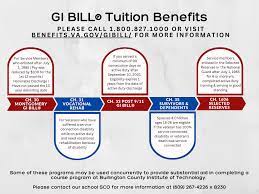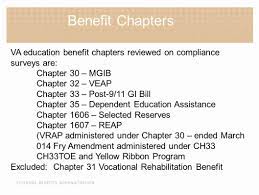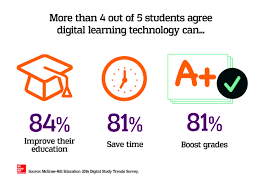Title: Unlocking Opportunities: Exploring Veterans Education Benefits
Introduction:
For veterans who have honorably served their country, transitioning to civilian life can present unique challenges. One significant aspect of this transition is pursuing higher education. Fortunately, veterans education benefits exist to support and empower those who have served in the military. In this article, we will delve into the various educational benefits available to veterans and how they can unlock new opportunities for personal and professional growth.
GI Bill:
The GI Bill is perhaps the most well-known veterans education benefit program. It offers financial assistance to eligible veterans, helping them cover tuition fees, housing allowances, and even book stipends. With different versions such as the Post-9/11 GI Bill or Montgomery GI Bill, these programs provide flexibility and options for veterans to choose the path that best suits their educational goals.
Yellow Ribbon Program:
The Yellow Ribbon Program works in conjunction with the Post-9/11 GI Bill to bridge any gaps in tuition coverage for private or out-of-state schools. Under this program, participating institutions agree to contribute additional funds toward a veteran’s education expenses, ensuring that financial barriers do not hinder their pursuit of higher education.
Vocational Rehabilitation and Employment (VR&E):
The VR&E program aims to assist disabled veterans in overcoming barriers caused by service-related injuries or disabilities. Through personalized counseling, vocational training, educational assistance, and job placement services, VR&E supports veterans in reentering the workforce or pursuing further education tailored to their abilities and interests.
Tuition Assistance Programs:
In addition to federal programs like the GI Bill, many states offer their own tuition assistance programs exclusively for veterans or dependents of deceased or disabled veterans. These programs vary by state but often provide funding for tuition expenses at public colleges and universities within the state.
Scholarships and Grants:
Numerous organizations recognize the sacrifices made by our veterans and offer scholarships specifically designed for them. These scholarships can be based on various criteria, including military service, academic excellence, or specific fields of study. Veterans should explore these opportunities to access additional financial aid that can further reduce the burden of educational expenses.
Conclusion:
Education is a powerful tool that opens doors to new opportunities and personal growth. Veterans education benefits serve as a bridge between military service and civilian life, providing crucial support to veterans pursuing higher education. Whether it’s through the GI Bill, Yellow Ribbon Program, vocational rehabilitation services, or state-specific programs, veterans have access to a range of resources designed to ease their transition and empower them on their educational journey.
As a society, we owe our deepest gratitude to those who have served in the military. By investing in veterans’ education, we not only honor their sacrifices but also recognize the immense value they bring to our communities and workforce. Let us continue supporting our veterans as they embark on new educational endeavors and unlock the boundless opportunities that await them.
Common Questions About Veterans Education Benefits in the US
- What does Chapter 35 benefits cover?
- Will the VA pay for my wife to go to school?
- What are the types of VA education benefits?
- How much is Chapter 35 benefits 2023?
What does Chapter 35 benefits cover?
Chapter 35 benefits, also known as the Survivors’ and Dependents’ Educational Assistance (DEA) program, is a veterans education benefit provided by the U.S. Department of Veterans Affairs (VA). This program offers educational assistance to eligible dependents of certain veterans who have either died or become permanently and totally disabled due to a service-connected disability.
Here are some key aspects of Chapter 35 benefits:
- Education and Training: Chapter 35 benefits provide financial assistance for pursuing various types of education and training programs. This includes degree programs, vocational or technical courses, apprenticeships, on-the-job training, and more.
- Eligibility: To be eligible for Chapter 35 benefits, you must be the spouse, child (under the age of 26), or surviving spouse or child of a veteran who meets specific criteria. The veteran must have either died while in active duty or as a result of a service-connected disability, or be determined by the VA to have a total and permanent disability resulting from their military service.
- Financial Assistance: Under Chapter 35 benefits, eligible dependents may receive a monthly stipend to help cover educational expenses such as tuition fees, books, supplies, and housing costs. The amount provided is determined based on factors like enrollment status and type of program pursued.
- Duration of Benefits: Generally, Chapter 35 benefits are available for up to 45 months in total. However, certain circumstances may extend this duration for eligible individuals.
- Application Process: To apply for Chapter 35 benefits, dependents must complete an application form (VA Form 22-5490) available on the VA’s official website or through their regional VA office. Additionally, individuals already receiving benefits under another VA program may need to complete an additional form (VA Form 22-5495).
It’s important for potential beneficiaries to consult with the VA or visit their official website for the most up-to-date information regarding eligibility criteria, benefits, and application procedures. The VA can provide personalized guidance and assistance to ensure that eligible dependents receive the educational support they deserve through Chapter 35 benefits.
Will the VA pay for my wife to go to school?
Yes, the Department of Veterans Affairs (VA) offers education benefits that can extend to eligible dependents of veterans. One such program is the Survivors’ and Dependents’ Educational Assistance (DEA) program. This program provides educational assistance to spouses and children of veterans who have died or are permanently and totally disabled as a result of their service.
Under the DEA program, eligible spouses can receive up to 45 months of education benefits, while children may receive benefits until they reach the age of 26. These benefits can be used towards pursuing a college degree, vocational training, apprenticeships, and other approved educational programs.
It’s important to note that specific eligibility criteria apply, including requirements related to the veteran’s service-connected disability or cause of death. To determine if you qualify for these education benefits for your wife, it is recommended that you contact the VA directly or visit their official website for detailed information on eligibility requirements and how to apply.
Remember, each individual’s circumstances may vary, so reaching out to the VA will provide you with accurate and personalized guidance regarding your specific situation.
What are the types of VA education benefits?
There are several types of VA education benefits available to veterans, service members, and their eligible dependents. These benefits are designed to provide financial assistance for pursuing higher education or vocational training. Here are some of the key types of VA education benefits:
- Post-9/11 GI Bill: This benefit is available to individuals who served on active duty after September 10, 2001. It offers financial support for tuition and fees, a monthly housing allowance, and a stipend for books and supplies. The Post-9/11 GI Bill also includes the Yellow Ribbon Program, which helps cover additional tuition costs for private or out-of-state schools.
- Montgomery GI Bill (MGIB): The MGIB provides education benefits to individuals who have completed at least two years of active duty service. It offers financial assistance for various educational programs, including college degrees, vocational training, apprenticeships, and flight training.
- Vocational Rehabilitation and Employment (VR&E): This program assists veterans with service-connected disabilities in overcoming barriers to employment or further education. VR&E provides counseling services, vocational training, educational assistance, job placement support, and other resources tailored to individual needs.
- Dependents’ Educational Assistance (DEA): DEA benefits are available to eligible dependents of certain veterans who have died or become permanently disabled due to their military service. This program provides funding for degree programs, certificate courses, apprenticeships, on-the-job training programs, and more.
- Tuition Assistance Top-Up: For those using the MGIB or Post-9/11 GI Bill while on active duty, Tuition Assistance Top-Up allows individuals to supplement their tuition assistance with VA education benefits if the cost of their course exceeds the amount covered by Tuition Assistance.
- Reserve Educational Assistance Program (REAP): REAP offers educational assistance to members of the Reserve components called up or activated in response to a war or national emergency. It provides financial support for various types of education and training programs.
- Fry Scholarship: The Fry Scholarship provides education benefits to surviving spouses and children of service members who died in the line of duty after September 10, 2001. It offers financial assistance for pursuing higher education or vocational training.
These are just a few examples of the VA education benefits available. Each program has specific eligibility criteria and varying levels of financial support. Veterans and their dependents are encouraged to explore these options further to determine which benefits they may qualify for and how to apply for them.
How much is Chapter 35 benefits 2023?
This is impossible to answer as Chapter 35 benefits are not determined until closer to the year 2023.



